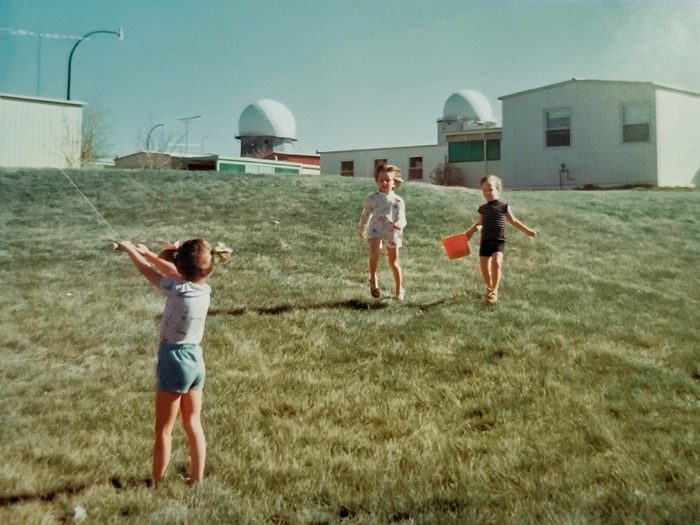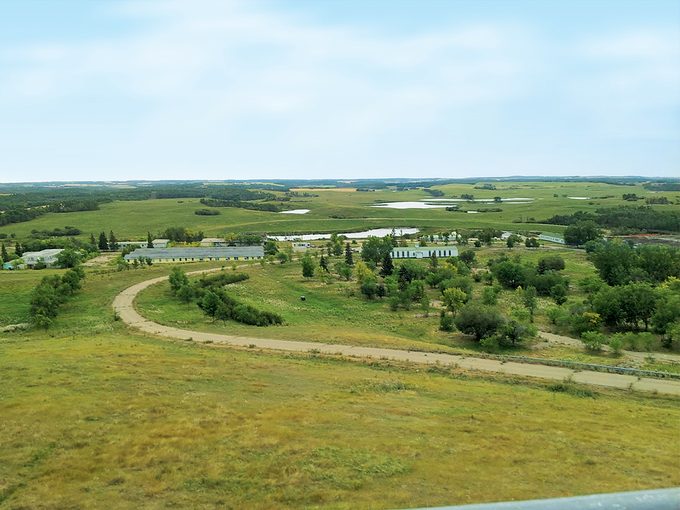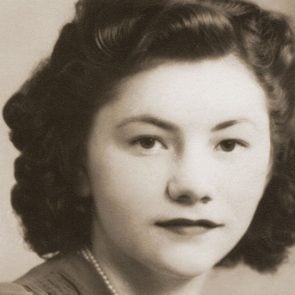This Podcast Remembers What Life Was Like on a Saskatchewan Canadian Forces Station

The podcast CFS Dana is bringing a shared history back to life with crowdsourced memories of the former military base in Saskatchewan.
Canadian Forces Station Dana, in operation from 1962 to 1987, is no longer a military radar base I can live on, but it is a place I can return to by reconnecting with others through story.
I lived on this small Saskatchewan base from four years old until I was eight. The base was about an hour away from Saskatoon and had around 100 homes. It had everything a child could want: an outdoor pool, a bowling alley, a library, an outdoor skating rink, a school you could walk to, friendly neighbours and instant friends. Families with kids were always moving in.
The entire base was our playground, accessible by foot or bike, and we did explore it. I lived on Middleton St. with my family until the summer of 1984, when my dad was posted to a base in Sydney, N.S. He was excited to be near his family; I felt like I was losing mine. I longed to stay, and I still long to go back after all these years.
During the pandemic, I turned my earliest and longest obsession into a podcast called CFS Dana. When I find someone who used to live at CFS Dana, also called Sage Hill, I ask them for their favourite memories and record their answers. Those anecdotes are the bulk of every episode, but I do throw in some fun questions about unexpected subjects that pop up during the conversation. I am a librarian and I love hearing people tell stories.
Some topics have turned into mysteries that I hope can be solved one day through future conversations with guests. A few people have mentioned a streaker who may or may not have been seen on base, and one man is hoping to reconnect with a woman he met through the base and cannot stop thinking about.
The memories are plentiful and precious. I hope listeners can keep filling in details about the base and the things that happened on it.
I have heard about first loves, co-workers and favourite teachers. There are hobbies that had their start at Dana and turned into careers, families who began to speak to one another again and listeners who have found long-lost friends. Some people have shared secrets with me that I have kept quiet. I leave it up to each guest what they would like to include or leave out.
One woman, Erin, shared a memory of Cabbage Patch Kids at CFS Dana. Moms would go into Saskatoon to look for them, but they would return empty-handed as the dolls were so popular at the time.
Erin and all the other kids were disappointed, and the moms were getting frustrated. Fortunately, Mrs. Douglas, who lived on the base, had a connection in Saskatoon. One of her relatives worked in a store that sold them, and when the next shipment came in, they put some dolls aside for her to pick up.
“Twenty or 30 came in that day,” said Erin. “I was super happy. It was a really big day for the base because all the Cabbage Patch Kids arrived, and everyone was happy. I’ll always remember that. We were very lucky to have Mrs. Douglas and her relative, to have that connection. Otherwise, I don’t know how long it would have taken us to get them.”

Mining Memories
A lot of us share the same recollections. Adults talk about the storms and parties, the beautiful scenery and the military exercises. Childhood memories incorporate the sledding hill and winter carnivals. People of all ages have stories about the swimming pool on base and their excursions to Bruno, Humboldt or Saskatoon. I am so happy—and completely surprised—whenever someone has a memory of my mom or my dad, both marathon runners and cross-country skiers at the time.
I suspected there were others who lived on the base who loved it as much as I do, but I heard several stories about how the base was loved by civilians, too—not only for the employment opportunities, but for schooling, recreation and friendship. And it went both ways. A few military members shared memories of working on farms off base on their days off. And I wasn’t expecting to learn so much about the Cold War or Canadian military history from talking to people who worked on the base.
As I talk to more people and they share different stories, the base grows bigger for me. It feels larger, like it’s still there. From the first hello, it seems as if I’m talking and listening to family. It’s been fascinating to hear what people remember about a tiny base in Saskatchewan that is loved and missed so much.
When I lived at CFS Dana as a child, I liked the idea of all of us being together. I have tried to recreate that through the podcast. I make it as simple as possible for people to connect with me. I call them on the telephone when it is convenient for them, and we talk about Dana. Then, when the podcast goes up, people can listen to the episodes whenever they like. It’s amazing how much one can remember by just starting to talk or by listening to a story. It snowballs!
All the Canadian bases I lived on are closed. People who lived or worked on or near those bases have nowhere to go when they want to return to a place they called home. I think that is why this podcast has meant so much to me and the people who listen and contribute.
If you have a connection with the base, please don’t be shy to reach out. I can’t wait to hear from you!
Tanya Boudreau can be reached at [email protected]. Find the CFS Dana podcast at anchor.fm/tanya766.
Next, check out the incredible story of how a small Saskatchewan community rallied to save the life of an unborn baby.






